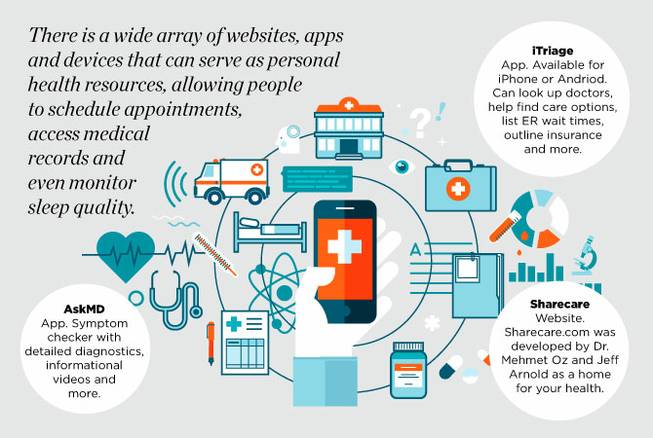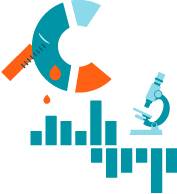
Sunday, March 29, 2015 | 2 a.m.
With all the talk about the health benefits of wearable computer technology, too often the concrete effects on everyday health care are left to vague promises. Technology, though, is starting to shape health care today and likely will revolutionize the industry in the future.
Some of the wearables, such as the Fitbit and the forthcoming Apple Watch, enable around-the-clock monitoring of key health and fitness functions in the body. But today’s health technology goes well beyond simple fitness.
It allows health care to be delivered more efficiently, more personally and more conveniently. And along the way, people can gain a better idea of where they fit on the health care spectrum.
Here is an overview of some digital health care tools that will give people deeper insight into their well-being:
Symptom trackers
Though online symptom checkers are not reliable diagnostic devices, when they first hit the market, many patients treated them as such.
But let’s face it: Allowing oneself to be sucked into the online black hole of medical information will make paranoid hypochondriacs out of the best of us.
Symptom checkers have value in that they give you a ballpark range of potential problems, but be sure to use your own judgment and see a doctor for a proper diagnosis.

Fitness trackers
Fitness trackers allow users to monitor different indicators of their fitness level. Indicators include heart-rate tracking (which offers insight into your activity level and calorific burn), pedometers and sleep sensors.
Waterproof models are available for swimmers.
There are hundreds of options on the market, so be sure to choose one based on your individual needs.
Examples: Jawbone UP24, Fitbit Flex, Garmin Vivofit
ER wait times
Websites, apps, billboards and texting services that offer ER wait times can help ensure you are seen in a timely fashion at the appropriate care facility.
Some apps offer pre check-in services, such as iNotify within the iTriage app, and can alert a hospital that you’re arriving and what symptoms you’re presenting.
But remember: In a life-threatening emergency, call 911 immediately.
Health tech
There is a wide array of websites, apps and devices that can serve as personal health resources, allowing people to schedule appointments, access medical records and even monitor sleep quality.

iTriage
App. Available for iPhone or Andriod. Can look up doctors, help find care options, list ER wait times, outline insurance and manage appointments. Includes a symptom checker and information on different diseases and medications.
RealAge.com
Website. Asks a series of questions about health, emotional well-being, diet and fitness to determine the “real” age of your body, considering your lifestyle and risks factors. It then offers improvement strategies.
Patient Portal
Website. Sunrisehealthinfo.com/patient-portal. Different hospitals use this service (and may have special urls), allowing you to access medical records online, get lab and test results, request prescription refills and exchange secure messages with your physician.

AskMD
App. Symptom checker with detailed diagnostics and informational videos. Suggests specialists, offers advice on disease management and summarizes results for doctor’s visit.
Sharecare
Website. Sharecare.com was developed by Dr. Mehmet Oz and Jeff Arnold as a home for your health. It offers people answers to health questions from physicians locally and from across the country.

Join the Discussion:
Check this out for a full explanation of our conversion to the LiveFyre commenting system and instructions on how to sign up for an account.
Full comments policy